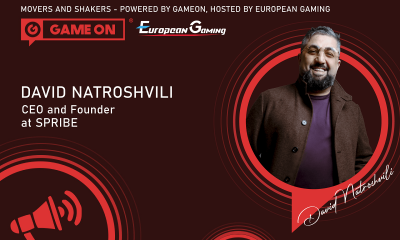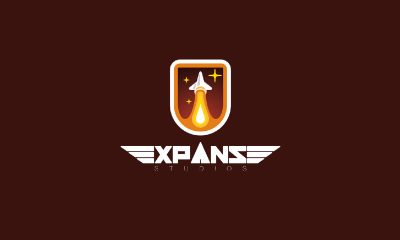Latest News
Movers and Shakers – Beyond integration: Why system interoperability is the real game changer
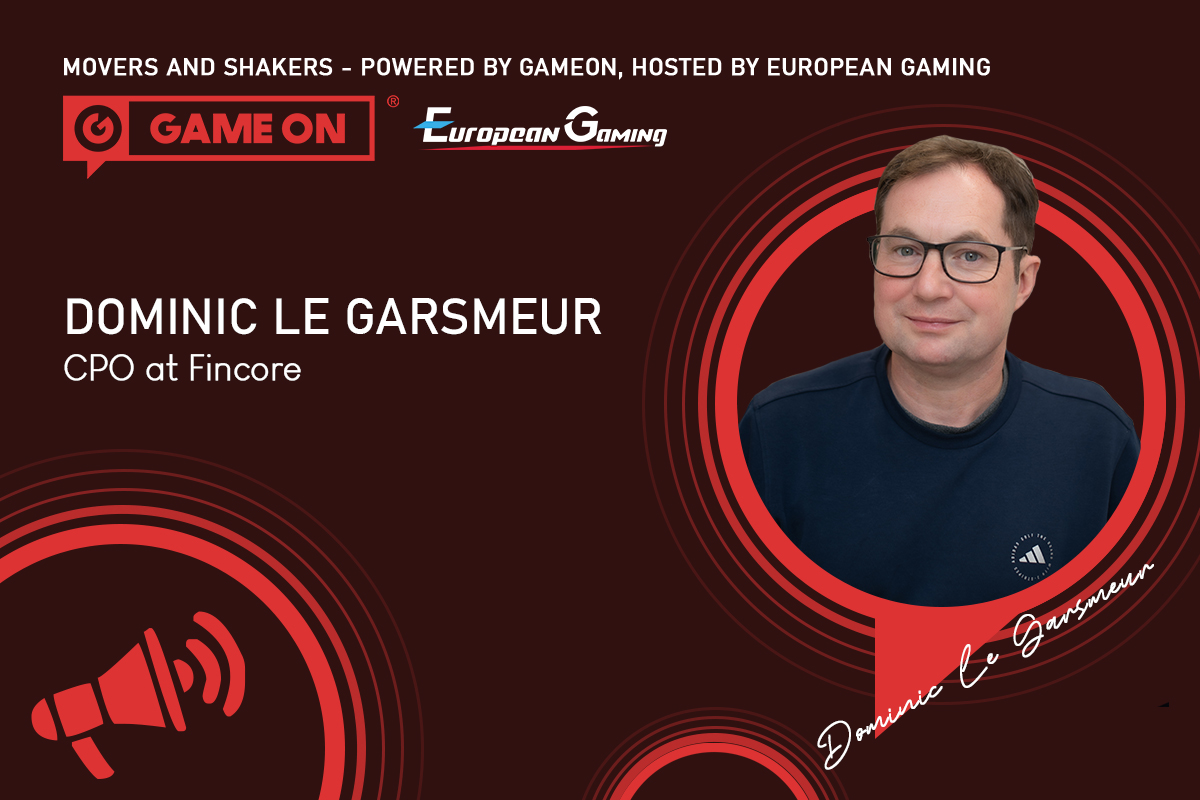
“Movers and Shakers” is a dynamic monthly column dedicated to exploring the latest trends, developments, and influential voices in the iGaming industry. Powered by GameOn and supported by HIPTHER, this op-ed series delves into the key players, emerging technologies, and regulatory changes shaping the future of online gaming. Each month, industry experts offer their insights and perspectives, providing readers with in-depth analysis and thought-provoking commentary on what’s driving the iGaming world forward. Whether you’re a seasoned professional or new to the scene, “Movers and Shakers” is your go-to source for staying ahead in the rapidly evolving iGaming landscape.
Dominic Le Garsmeur (CPO) at Fincore, says integrations without a clear interoperability strategy add technical and operational debt, hampering future growth.
System integrations are hugely important for any online sportsbook or casino, adding capabilities and features to drive growth. But integrating without considering and optimising interoperability can do more harm than good by adding technical and operational debt to the business and ultimately hitting growth.
Integrating without interoperability pushes information from one system to another, but the connection itself has no intelligence. It’s a mechanical link, and the systems remain fundamentally separate, each operating with its own distinct rules. Any real understanding, like why that data was sent or what other processes it should trigger, is lost, creating data silos that are technically connected but strategically disconnected.
System interoperability provides the intelligence the connection lacks, establishing a shared operational model for the platform so all systems can act in concert. Most importantly, it creates a future-proof foundation, allowing new capabilities and features to be added with agility and confidence, turning the platform into an engine for innovation rather than a source of technical debt.
Before looking at why interoperability is more powerful than integration, and how companies can solve it, it’s important to understand how disconnects between platforms and systems occur in the first place.
Why does disconnection happen?
Operators acquire their tech stacks in different ways, but usually through a combination of building, inheriting legacy tech, acquisition and third-party providers. This often leads to platform and system silos with little to no compatibility between them.
Ultimately, disconnected systems drag down delivery and without interoperability, companies waste time reconciling platforms and tech rather than advancing forward.
Interoperability is more powerful than integration
Integration often means linking systems at a basic level, but interoperability ensures that data, logic and workflows are aligned and extensible.
It’s critical to have a strategic data layer and shared data structures that enables standardising of data representations, aligning systems at the logic level, not just the interface, and building an architecture designed to unify and extend across platforms.
In complex industries such as gaming, where tech plays such an important role in the user experience and the trust consumers have in brands, system interoperability is the only way to scale with control. In short, integration links, interoperability empowers.
Why interoperability is such a challenge in the gaming industry
Each integration is unique. Why? Because the combination of legacy systems, niche vendors and varying regulations in markets across the world means there is no blueprint for operators to follow.
Remember, most operator platforms are now decades old and were not built with modularity or openness in mind. And even those developing new platforms and systems from scratch often lack the in-house capability to design for interoperability from the get-go.
The risk of not achieving interoperability
When systems don’t interoperate, things start to fall apart. For example, delivery can grind to a halt, with every new feature launch or market entry becoming a grind. There are compliance risks, too, especially when it comes to fractured data and an increased risk of errors and audit gaps.
Then, of course, there is the poor player experience that will be provided. This could be anything from glitchy games to failed deposits and even the wrong marketing communications being sent to the wrong player cohorts.
It also impacts an operator’s ability to develop and innovate, as IT and tech become reactive rather than proactive. And in such a competitive market, this can see a brand quickly fall behind the curve.
How to solve the interoperability conundrum
Ensuring interoperability is a complex and comprehensive undertaking, but there are some high-level things operators can do.
This starts with standardising critical data flows and logic, not just the interface. Remember, a single view of data is what ensures all the platforms, systems and networks communicate with each other in the same language.
Operators should also design for change, as architecture must support long-term growth and plug-and-play modularity. In most cases, it’s best to invest in strategic partners, not just tools.
How strategic partners can help
Partners such as Fincore can provide the strategic clarity operators need, defining what interoperability looks like for them and based on their business goals. We also bring execution muscle – we don’t just design it, we build it.
The right partner also brings compliance confidence. Companies such as Fincore are highly experienced when it comes to interoperability, and everything we do stands up to regulatory scrutiny.
This can be seen in our proven track record for delivering interoperability for everything from complex migrations to global-scale game roll-outs.
A real-world example of interoperability
Fincore worked with a US-based gaming services provider whose legacy systems across its land-based venues had created silos in payments, loyalty and in-resort experiences.
The solution we proposed saw us design and deliver a digital wallet that became the unified digital layer across the physical properties. We also integrated deeply with multiple rigid legacy systems to provide secure and compliant interoperability at scale.
The result? We delivered on time, unlocked a new digital product line and created a long-term tech foundation for the company to continue to build on.
When it comes to integrations, you can always wire systems together, but if you don’t do it in the right way, you get chaos. Interoperability is about creating order within platforms and systems, which in turn allows for unlimited scaling and growth.
And that’s why interoperability is the real game-changer.
The post Movers and Shakers – Beyond integration: Why system interoperability is the real game changer appeared first on European Gaming Industry News.
affiliate platform
Ihor Zarechnyi signs up to the Gamblers Connect Contributors Program
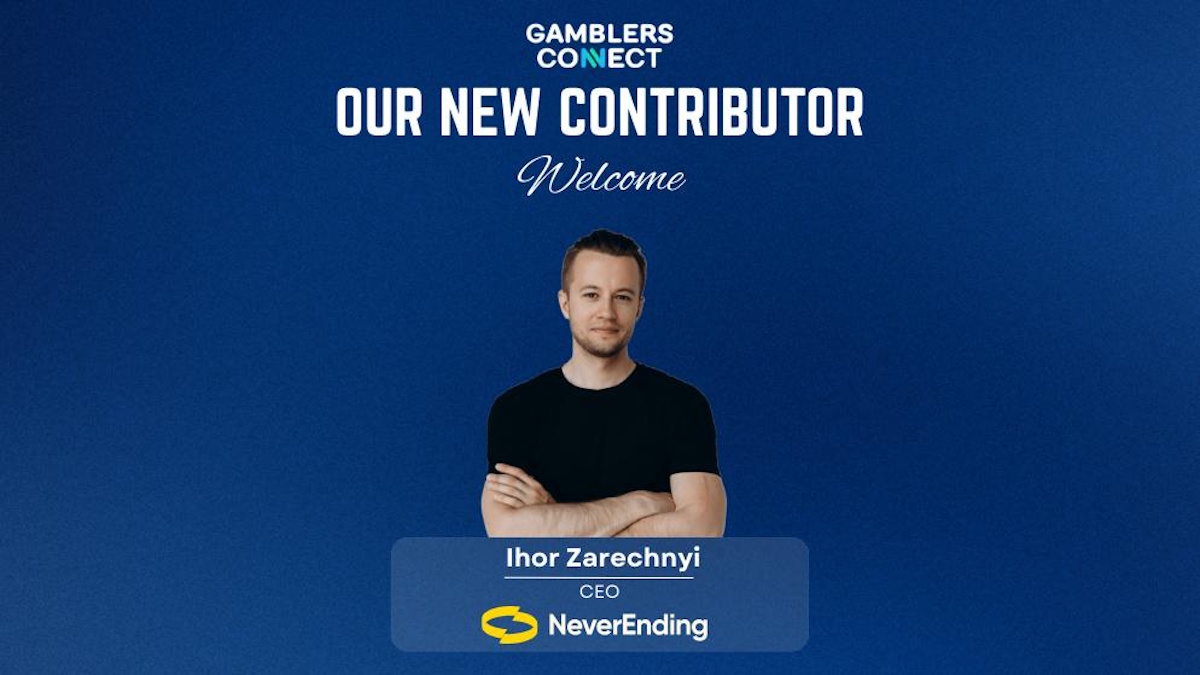
Gamblers Connect, the award‑winning iGaming media and affiliate platform, has welcomed Ihor Zarechnyi, CEO and Founder of NeverEnding, as the latest expert in its Gamblers Connect Contributors Program.
Zarechnyi becomes the second established industry professional to join this curated roster, which prioritizes experienced practitioners over guest bloggers and emphasizes real‑world insight from leaders with “skin in the game.”
As head of NeverEnding, a dynamic iGaming studio built to eliminate bureaucracy and drive innovation, Zarechnyi brings a performance‑driven approach, rooted in his “Games, Growth, and No Excuses” philosophy. In his new role as one of the program’s 12 contributors, he will offer behind‑the‑scenes perspectives on building a game studio from scratch and launching effective global content strategies based on his extensive executive experience.
Gamblers Connect’s Founder, Gjorgje Ristikj, highlighted Zarechnyi’s unique outlook on product development. Ristikj noted that Zarechnyi’s “B2B backed by B2C power” approach focuses on creating games that deliver genuine market traction and strong player engagement — a shift away from superficial visibility toward meaningful industry impact. This aligns with the platform’s goal of delivering high‑value educational content on game mechanics, technological stability, and real operational challenges.
The post Ihor Zarechnyi signs up to the Gamblers Connect Contributors Program appeared first on Eastern European Gaming | Global iGaming & Tech Intelligence Hub.
Brazilian Carnival
Esportes da Sorte transforms Carnival 2026 into a nationwide immersive experience
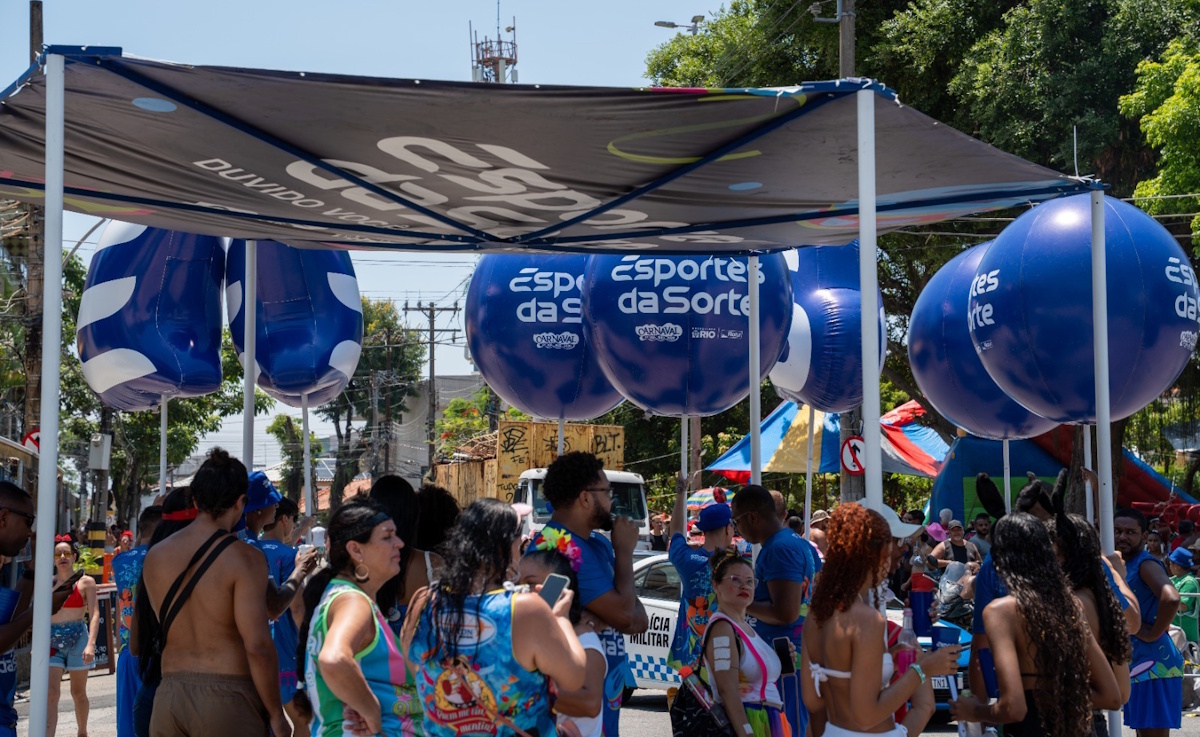
Leading Brazilian iGaming company Esportes da Sorte has transformed Carnival 2026 into a nationwide immersive experience, activating urban art installations, hydration stations and large‑scale attractions across nine cities in Brazil. As part of its expanded cultural engagement strategy, the brand is serving as an official sponsor in key Carnival locations and delivering experiential initiatives designed for revelers in the streets and major public spaces.
Esportes da Sorte’s nationwide platform builds on its history of investing in popular culture and public events, moving beyond traditional branding to create meaningful on‑site activations that enhance the urban environment and respond to the unique character of each city’s Carnival celebrations.
In Rio de Janeiro, the company’s efforts focus on the street Carnival experience with hydration points, cool zones and shaded areas in high‑traffic celebration routes. São Paulo’s megabloc circuits feature water trucks, hydration stations and on‑site urban support.
In Recife Antigo, one of Carnival’s cultural centers, Esportes da Sorte installed a standout Ferris wheel at Marco Zero, offering panoramic views of the festivities and historic landscape. Urban transformations like video mapping on iconic buildings and aerial installations along Rua Marquês de Olinda further blend public space with the Carnival experience.
Other cities such as Olinda and Salvador also feature tailored activations, including sensory design, refreshment tunnels and themed artistic displays that align with local traditions and festival dynamics.
In addition to physical structures, the initiative includes a robust communications strategy, sensory activations, public well‑being supports and content campaigns that amplify the carnival‑street experience across digital and traditional media.
According to Germana Casal, Production Coordinator at the Esportes Gaming Brasil Group, the goal is to “be present in a meaningful way at the country’s biggest popular celebration,” respecting each city’s identity and delivering initiatives that improve the Carnival experience for participants.
Esportes da Sorte’s Carnival 2026 project builds on the brand’s presence at more than 100 Carnival parties and street blocos in 2025, reinforcing its leadership role in Brazil’s largest cultural event and deepening its connection with urban celebration culture nationwide.
The post Esportes da Sorte transforms Carnival 2026 into a nationwide immersive experience appeared first on Eastern European Gaming | Global iGaming & Tech Intelligence Hub.
chess esports
Team Vitality announces E.Leclerc as new Main Partner
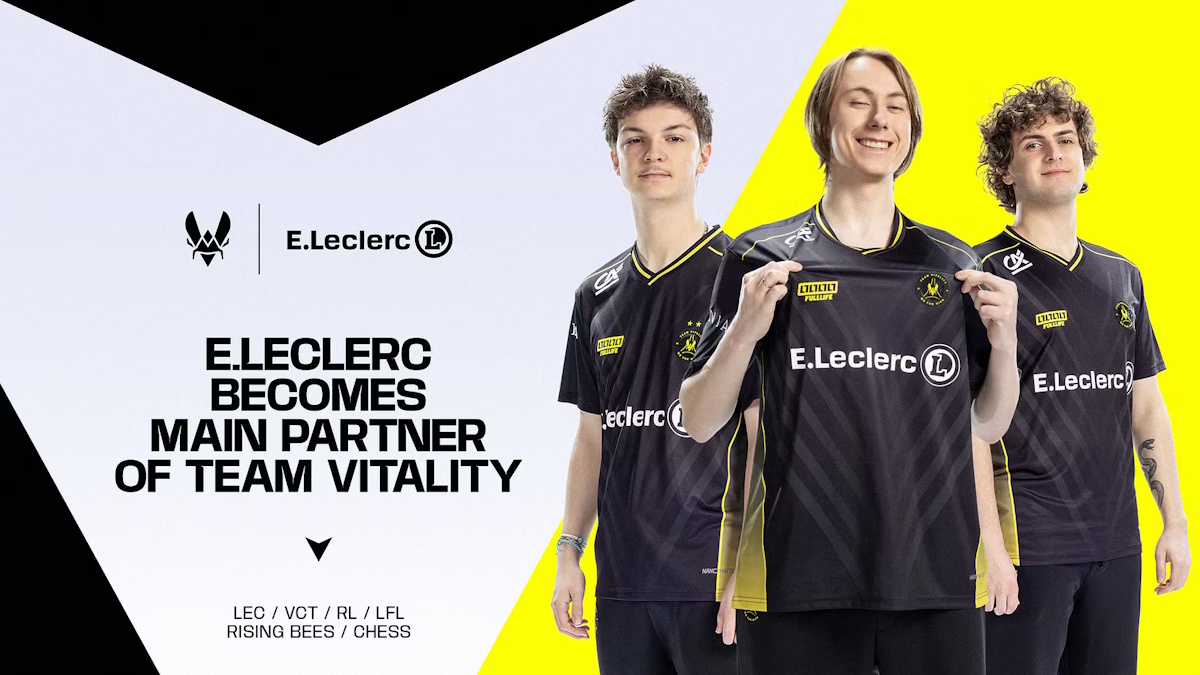
Team Vitality, one of France’s leading esports organizations, has announced a strategic new partnership with French retail giant E.Leclerc, naming the supermarket chain as the club’s Main Partner for 2026.
Under the agreement, E.Leclerc’s logo will feature prominently on Team Vitality’s international team jerseys, including rosters for League of Legends (LEC and LFL), Valorant (VCT EMEA), Rocket League, Rising Bees and Chess.
Shared Values and Fan Initiatives
The partnership aims to promote accessibility, wellness, and nutrition within the esports community, while bringing gaming culture into E.Leclerc retail spaces through immersive experiences, tournaments and activations designed to engage fans across France.
Team Vitality’s holistic wellbeing program, KARE, which supports performance, nutrition and mental health, aligns closely with E.Leclerc’s focus on responsible lifestyle initiatives. Together, they plan to champion inclusivity, provide unique gaming opportunities, and celebrate esports culture in both digital and physical environments.
With a global audience exceeding 10 million followers, Team Vitality’s influence in competitive gaming makes this partnership a landmark moment for both brands. E.Leclerc’s commitment to youth engagement and cultural connection positions the retailer as a significant non‑endemic supporter of the growing esports ecosystem.
Nicolas Maurer, CEO and Co‑Founder of Team Vitality, described the alliance as a historic milestone that will broaden esports’ reach across everyday life in France and reinforce its cultural legitimacy.
The post Team Vitality announces E.Leclerc as new Main Partner appeared first on Eastern European Gaming | Global iGaming & Tech Intelligence Hub.
-

 Aphrodite’s Kiss5 days ago
Aphrodite’s Kiss5 days agoLove on the Reels: Slotland Introduces “Aphrodite’s Kiss”
-

 Amusnet5 days ago
Amusnet5 days agoWeek 7/2026 slot games releases
-

 Finnish Institute for Health and Welfare7 days ago
Finnish Institute for Health and Welfare7 days agoFinland’s Health Authority Launches “2-4-2” Gambling Risk Limits Ahead of Expected Advertising Boom
-

 Latest News7 days ago
Latest News7 days agoWinSpirit’s UnValentine’s Day: A New Take on February Engagement
-

 Bryndís Hrafnkelsdóttir7 days ago
Bryndís Hrafnkelsdóttir7 days agoNOVOVISION Implemented at the University of Iceland Lottery
-

 Denmark6 days ago
Denmark6 days agoRoyalCasino Partners with ScatterKings for Company’s Danish Launch
-

 Balkans7 days ago
Balkans7 days agoExpanse Studios Signs Content Distribution Deal with Lobbet
-

 Booming Games6 days ago
Booming Games6 days agoTreasure Hunt Revival — Booming Games Launches Gold Gold Gold Hold and Win



